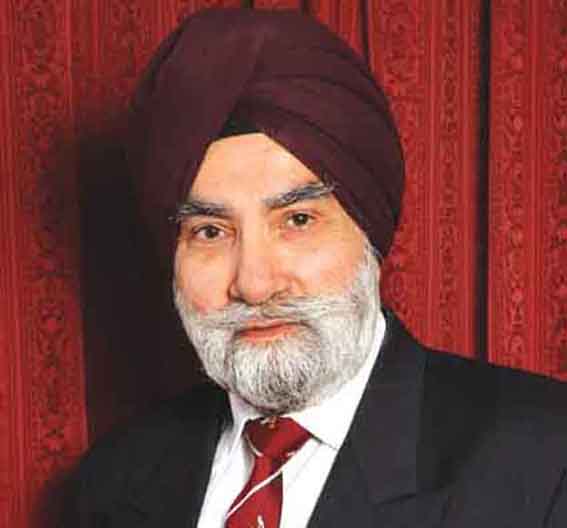Sikh Nation-Builders (ਸਿੱਖ ਕੌਮ ਦੇ ਉਸਰਈਏ)

During the Coronation of King Charles III we were reminded that the duty of a ruler is not to be served but to serve. This message resonates with Sikhi-based leadership ideal. However, Sikhi accepts collective leadership only, which pools diverse skills and promotes the desire to serve. The human urge to promote self-interest, name and fame and the desire to be surrounded by sycophants, is kept in check. In contrast are those who frustrate Sikh Qaumi recognition and rights to secure personal and family positions.
In the Panjab Times (Issue No. 2977) last week, there is a well-researched article by S. Kulwant Singh Dhesi, about late S. Parkash Singh Badal, described as the grand old banyan tree - ਬਾਬਾ ਬੋਹੜ - of Panjab politics. He became Chief Minister of Panjab 5 times since 1970. He played a key role in Panjab politics and Panthic affairs. Only time will tell how he is judged by Sikh history regarding the state of the Panth and Panjab today.
From a Sikhi viewpoint, pushing self as a community leader, itself detracts from the Sikhi image of a person who is supposed to inspires others with own example. We read about those great but humble Sikhs in Guru and Khalsa history serving the mission of the Guru Jote. There were many role- sevadar-mentors with diverse skills like Baba Budha, Bhai Gurdas, Bhai Mani Singh, Bhai Nand Lal, Baba Banda Singh Bahadur, Baba Deep Singh, Sardar (Nawab) Kapur Singh and so on. They all inspired, guided but, most importantly served, the Panth of the Guru in their own ways. In case of Nawab Kapur Singh, otherwise a humble Panthic sewadar, he was invited to provide guidance and strategy for the Khalsa Panth during a most challenging period. His advice regarding the re-organisation of the Khalsa Army was accepted by the Panth. He empowered many others to lead the Misls to eventually establish Khalsa Raj. The commanding roles of later Sikh generals were limited to military campaigns.
Despite all the negativity, I believe that process continues today in the Sikh world through jathebandis and community thinkers and mentors. The sudden appearance of youngish leaders should not surprise us because they are always there. There are Sikh charities and hundreds of activists in different fields including Sikhi education and research.
There will always be self-promoting individuals who do not believe in a collective approach which can draw on community resources in diverse skills. Such self-centred minds use every stratagem to try and present themselves as the sole representatives of communities. Sometimes they succeed in achieving personal ambitions but at great longer-term cost to community unity and at the expense of smooth succession planning and next generation participation. Like late S. Badal and family, community positions are held not only for life but even treated as if these were hereditary.
In Sikhi tradition the best way to serve &ndash but not to be served - is by promoting team-lead by equals. That was the Message of Guru Gobind Singh when He bowed to the Panj Piaray. A Sikh, no matter how skilful at securing own position for lifetime, will be eventually judged by history under the collective achievement of the Khalsa Panth, a theo-political Qaum (not just a religion). That judgement can be harsh. That is our take from the life of late Sardar Parkash Singh Badal.
Gurmukh Singh OBE
Principal Civil Servant retd. (UK)